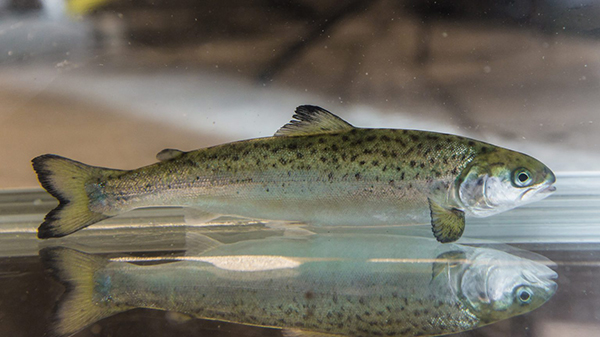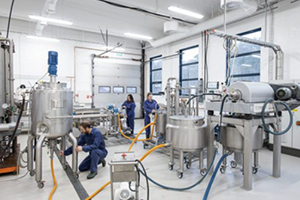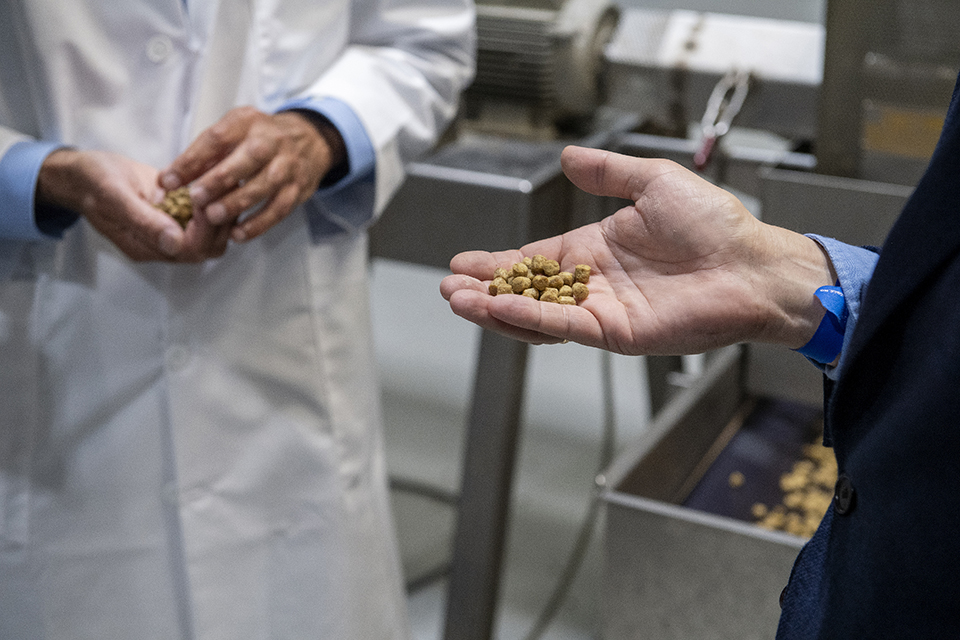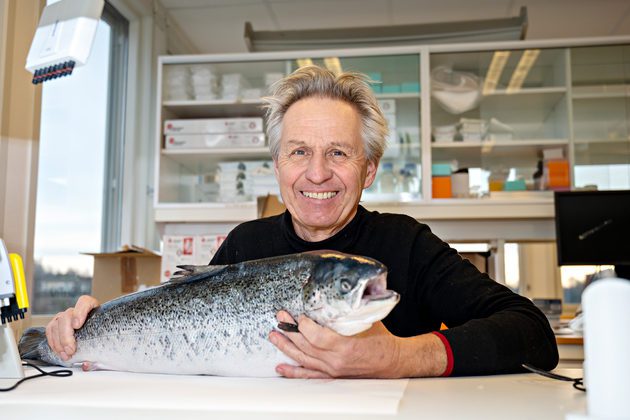
Scientists at food research institute Nofima have developed a test that measures the immune status of salmon smolt.
Salmon that adapt from a life in fresh water to seawater need a robust immune system to make the transition. The test can provide information that benefits fish farmers when transferring salmon to the sea.
“A few years ago, we found that the immune system was weakened during smoltification,” said Aleksei Krasnov, senior scientist at Nofima. “As a result, we decided to develop a test to measure the immune status of salmon during smoltification.”
The diagnostic test measures the activity of 44 genes that are important for the immune system. A sample is taken from the gills or the dorsal fin without harming the fish. The researchers found the normal activity level for each of the 44 genes in a fish of good condition. If the activity level is too high or too low, it may indicate poor immune status. This means that they can now offer tests for immune status in salmon smolt.
“We are able to see which fish are in good condition and which are not,” said Krasnov. “In addition, we know which fish seem healthy, but in reality are not.”
The results can help increase the smolts’ chances of survival. Every year, approximately 15 percent of farmed salmon die after being transferred from land-based freshwater tanks to net pens at sea. Most of these fish die shortly after being transferred. Nofima says that this test is “very relevant.”
“The successful development of this novel technique provides companies with a new tool in the smolt quality assessment box, for verifying the immune competency and robustness of smolt before transfer to sea,” said Dr. Gordon Ritchie, co-author of the paper and group manager fish health and welfare in Mowi ASA. “This immune status diagnostic tool can also be utilized in future research projects on smolt performance and survival.”
Read more about the study here.
Follow the Advocate on Twitter @GSA_Advocate
Now that you've reached the end of the article ...
… please consider supporting GSA’s mission to advance responsible seafood practices through education, advocacy and third-party assurances. The Advocate aims to document the evolution of responsible seafood practices and share the expansive knowledge of our vast network of contributors.
By becoming a Global Seafood Alliance member, you’re ensuring that all of the pre-competitive work we do through member benefits, resources and events can continue. Individual membership costs just $50 a year.
Not a GSA member? Join us.
Author
Tagged With
Related Posts

Health & Welfare
Gene editing eyed as a potential sea lice solution
A Nofima-led study is exploring the possibilities of using gene editing to make salmon more resistant to sea lice.

Aquafeeds
Nofima identifies optimal feed components for the sea lice cleaner fish ballan wrasse
A Nofima study has identified key feed components for ballan wrasse, a sea lice cleaner fish important to Norway's salmon industry.

Aquafeeds
Nofima launches collaborative project to develop sustainable ingredients for farmed salmon
Nofima has launched the Millennial Salmon Project, a collaborative research initiative to develop sustainable ingredients for farmed salmon.

Health & Welfare
Nofima unlocks ‘promising’ method for sterilizing farmed salmon at embryotic stage
A new technique for sterilizing farmed salmon at the embryonic stage could limit the impact of escaped farmed salmon in rivers.



